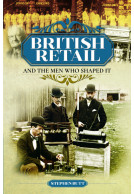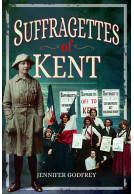Rebuilding Post-War Britain (Paperback)
Latvian, Lithuanian and Estonian refugees in Britain, 1946-51
Imprint: Pen & Sword History
Pages: 242
ISBN: 9781473860575
Published: 7th June 2017
National Publicity!
As featured by Mail Online - How tens of thousands of Eastern European immigrants helped rebuild Britain in the dark days after WWII
(click here for international delivery rates)
Order within the next 9 hours, 57 minutes to get your order processed the next working day!
Need a currency converter? Check XE.com for live rates
| Other formats available | Price |
|---|---|
| Rebuilding Post-War Britain ePub (19.0 MB) Add to Basket | £6.99 |
'Germany wasn't really a place for settling in, because after the war it was pretty devastated, and there wasn't really a chance to start again, so I thought Id come to England. It was a case of people between 18 and 50 and you had to be fit because it was mainly physical work. For men, it was mines and agricultural work and brick factories and women, mainly textiles.'
'We were thinking it was temporary. We were thinking the war would restart with the west and the east, and that the west would win, and we would be going home. But, it wasn't like that.'
After the Second World War, thousands of Latvian, Lithuanian and Estonian refugees, uprooted by war and conflict in their homelands, were recruited from Displaced Persons Camps in Germany to fill labour shortages in Britain. This unknown episode in Britain's immigration history is brought to life in this book, through interview extracts and documentary sources. Women were the first recruits to the so-called European Volunteer Worker Schemes, in which 25,000 Baltic men and women came to Britain between 1946 and 1951, to work in hospitals, textiles, agriculture, coal mining and other undermanned areas of industry. Initially regarding their stay in Britain as temporary, a majority of these Latvian, Lithuanian and Estonian men and women remained in Britain their whole lives. Recently joined by more migrants from the Baltic States, this book tells the story of Britain's Baltic communities, from the earliest accounts of their arrival in Britain to the present day.
A very interesting and enjoyable book
Unite Landworker
This is a very interesting and enjoyable book.
Landworker magazine, Winter 2018 - reviewed by Mark Metcalf
I think if you are interested in the history of this area of Europe it should definitely be on your list of books to read.
NetGalley, reviewed by Diana Thomas
As featured in 'book news in brief'
Family Tree, December 2017
As featured in
Northern Echo
A successful blend of academic research and popular writing.
WDYTYA? Magazine, September 2017 – reviewed by Jad Adams.
The not insignificant matter of East European immigration into Britain has evidently happened before. Germany was in ruins, Britain was largely unscathed, although some towns and cities suffered more than others, of course. Emily Gilbert described how the Eat Europeans found the prospect of settling in and working in Britain appealed. A fascinating and unknown slice of British social history.
Books Monthly
Read the complete review here.
As featured on
Mail Online 17/5/17
About Dr Emily Gilbert
Dr Emily Gilbert gained a PhD from the University of Sheffield for her research about the Baltic communities in Britain, later published as Changing Identities: Latvian, Lithuanians and Estonians in Great Britain. She also holds a Masters Degree in Russian and East European Studies from the University of Birmingham, and a Degree in History from the University of Newcastle. She has held research positions at the Universities of London and Newcastle, as well as research and policy roles in charities and local government. For further information about her work on the Baltic communities in Great Britain, see her website: www.changingidentities.wordpress.com















